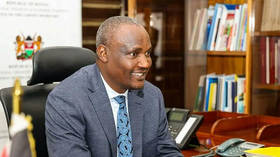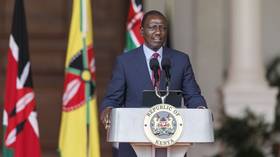Kenya to reintroduce controversial tax measures

Kenya’s government is set to reinstate some of the tax measures that were previously scrapped following deadly protests in June, Kenyan Finance Minister John Mbadi has said.
In an interview with Citizen TV news agency on Sunday, Mbadi explained that while some of the tax measures would be modified and not all would be reinstated, they are necessary to cover essential expenditure, including the payment of teachers’ wages.
“We have lined up 47 amendments, among them the eco-levy. We will, however, remove the ban on sanitary pads and other sensitive items,” he stated.
Mbadi revealed that the government is contemplating around 49 tax measures aimed at generating approximately 150 billion Kenyan shillings ($1.2 billion).
Among the proposed measures is the reintroduction of an “eco-levy” on goods like electronic items and plastic packaging, which is intended to address environmental concerns by reducing waste.
“If you are injurious to the environment then you must pay for helping make good the harm you have caused,” Mbadi argued.
According to Citizen TV, these new tax measures, outlined in the Tax Amendment Bill, are expected to be implemented by the end of September.
Kenyan President William Ruto abandoned this year’s Finance Bill on June 26, which was aimed at raising $2.7 billion in taxes. Demonstrators stormed parliament and launched widespread demonstrations across the country, forcing the government to backtrack on its plans.
On July 11, Ruto also dismissed most of his cabinet. However, the protests escalated into violence and resulted in dozens of deaths.
The Kenyan leader, who had championed the Finance Bill as essential for securing IMF funding and preventing a debt default, said the government is now considering alternative measures, including budget cuts for his office.













